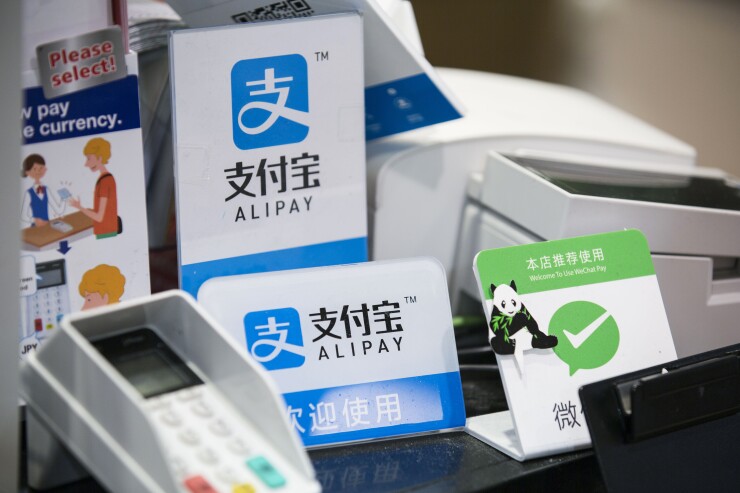With the U.S. and China both threatening each other with lofty tariffs, one thing is for certain, the list of casualties in the looming U.S.-China trade war will be long.
In fact, according to a recent report published on
Businesses, primarily luxury brands vying for Chinese tourists’ money, are already entering partnerships with some of the biggest players in the Chinese payments market, such as AliPay, and WeChat Pay, with the goal of offering these tourists the ease of payments that they are accustomed to.

However, with a potential trade war right around the corner, Chinese brands may not be too quick to adopt U.S. card schemes such as Visa and Mastercard, primarily due to additional regulation that will likely be imposed by the central bank. So it's only natural that these payment providers will look for partnership opportunities elsewhere, and the market that is the next big shopping hub for the Chinese tourists is Europe.
In addition, the trade war will directly affect trade volumes between the U.S. and China resulting in an increase in retail prices of some products. Certain European companies are already capitalizing on this possibility and offering competitive prices to entice Chinese customers, directly boosting their sales and revenues.
Furthermore, with the U.S. imposing higher tariffs on Chinese products, we are bound to see a decline in China's exports to the U.S., which may result in US turning to other markets for their importing needs, including Europe. Both U.S. and Chinese customers, who wouldn’t want to pay 10-15% higher price, will likely turn to other regions for their purchasing needs, including European countries.
China is the production site of the world and both U.S. and China share a mutual dependence. However, if the trade war ensues, China wouldn’t shy away from sharing its economic dependencies with other markets.
There is, of course, an alternative scenario that may play out, a fundamental change in the Chinese government's reaction to new U.S. policies with a dramatic reduction in Chinese duties and domestic protection on imports. This scenario, though ideal, is less likely.





